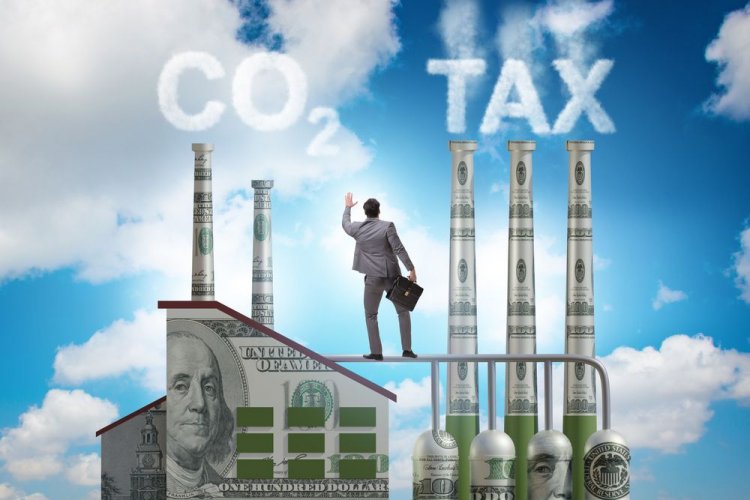Ukraine is working on creating a system for trading greenhouse gas emissions and by increasing the domestic tax on carbon emissions.
This is necessary to prepare for the European Carbon Import Adjustment Mechanism (CBAM), reports ICIS.
It is noted that reducing the carbon footprint and bringing the economy into compliance with new EU rules is necessary for the competitiveness of companies. After all, the block is the main export market.
The article emphasized that starting in 2026, exporters will pay a carbon tax, i.e. the difference between the local and European price for carbon emissions. The EU's CBAM does not foresee any concessions for Ukraine, despite the fact that its industrial base has been seriously damaged since the beginning of the Russian-Ukrainian war.
"Ukraine has a direct interest in reducing its carbon footprint and ensuring the competitiveness of its companies after the full implementation of the CBAM mechanism in 2026," ICIS emphasized.
Olga Yevstigneeva, adviser to the head of the State Agency for Energy Efficiency and Energy Saving of Ukraine, said that the country is working on several projects. They are designed to reduce their carbon footprint and ensure companies' competitiveness, as well as meet EU requirements.
She emphasized that before the full-scale invasion, Ukraine had a large industrial base and exported iron ore, semi-finished steel products, as well as various agricultural products. However, due to the war, total exports fell by 35% as the industrial base was damaged.
It is noted that Ukraine has committed to increase the target share of renewable energy in the total installed capacity from 9% to 27% by 2030. However, due to the war, about 90% of wind and about 50% of solar capacity have been destroyed or occupied. However, some companies are now working to expand their installed renewable capacity. Thus, DTEK launched the first stage of the Tyligul wind farm with a capacity of 114 MW and plans to expand it to 500 MW.
The article emphasized that the parliament also passed a law on the creation of a decarbonization fund. In addition, a new decree is expected to be adopted in the coming weeks, setting out the rules for refunds to companies that take active steps to decarbonize their operations.
ICIS said that although Ukraine increased the eco-tax on carbon emissions from UAH 10 per ton of CO2-equivalent to UAH 30, this is only a small part of the prices for carbon emissions in the EU (about EUR 80.00 per ton).
According to Yevstigneeva, Ukraine is also working with the German Agency for International Cooperation to create a functional emissions trading system that will help fill the gap in the coming years. However, there are a number of challenges, including strengthening greenhouse gas measurement, reporting and verification to ensure proper reporting of carbon emissions.
She emphasized that in 2021, only 264 GHG-emitting installations had officially submitted monitoring plans to the National Greenhouse Gas Emissions Accounting Center, that is, only 15% of the total number of installations.
"It is necessary to accurately calculate emissions before an appropriate carbon map is drawn up, which would reflect scientifically based climate goals," Yevstigneeva said.
Earlier, EcoPolitic wrote, that Minister of Environmental Protection and Natural Resources Ruslan Strelets said that in Ukraine, the greenhouse gas emissions trading system is planned to launch from 2025 in test mode.
Previously, EcoPolitic collected the main proposals for establishment of ETS and caveats regarding them.





